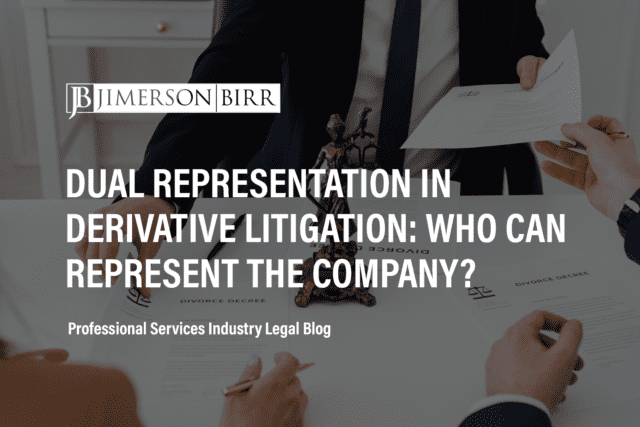What is business spending?
Business spending refers to the money a business invests in its operations, including purchasing goods and services, capital expenditures, and other expenses. It includes all the costs incurred by a business to generate revenue and maintain operations. Responsible spending is a crucial aspect of any organization, as it helps to drive growth and profitability. Therefore, companies must carefully manage their spending to ensure they make investments that will deliver the highest return on investment and avoid unnecessary costs that can eat into profits.
Business spending includes purchasing raw materials, salaries and wages for employees, rent or lease payments for office or manufacturing space, marketing and advertising expenses, travel and entertainment costs, research and development fees, and capital expenditures such as equipment or property. The relevance of these spending categories (and others) depends significantly on a business’s particular industry.
Need help with a matter related to business spending? Schedule your consultation today with a top shareholder disputes and derivative litigation attorney.
In Florida, which laws and regulations apply to business spending?
In Florida, businesses are subject to various laws and regulations related to their spending activities. Some of the key laws and regulations that relate to business spending in Florida are:
- Sales tax laws: Under Chapter 212 of the Florida Statutes, Florida has a statewide sales tax of 6% on most goods and services. Businesses are required to collect and remit sales tax on taxable sales.
- Corporate income tax: Florida imposes a corporate income tax on businesses organized as corporations or limited liability companies (LLCs) taxed as corporations.
- Workers’ compensation insurance: Florida law requires most employers to carry workers’ compensation insurance to benefit employees injured or ill due to their work.
- Wage and hour laws: Under the Florida Minimum Wage Act, Florida law requires employers to pay employees minimum wage and comply with federal overtime laws.
- Unemployment compensation: Florida requires most employers to pay unemployment compensation taxes, which fund benefits to eligible workers who lose their jobs through no fault of their own.
- Contract and procurement laws: Florida law, as listed in Chapter 287 of the Florida Statutes, has various laws and regulations related to contracting and procurement by businesses, including rules governing bid protests, competitive bidding, and contract performance.
What evidence does a plaintiff generally need to file a lawsuit regarding business spending?
The evidence required to file a lawsuit regarding business spending depends on underlying legal claims. However, in general, a plaintiff must provide evidence that proves that the defendant engaged in wrongful or illegal spending activities that caused harm to the plaintiff. Some common types of evidence that a plaintiff may use in a business spending lawsuit include:
- Contracts, invoices, and receipts demonstrating the spending activity’s nature and the amounts involved.
- Financial statements showing the impact of the spending activity on the plaintiff’s business or economic interests.
- Emails, correspondence, and other documents demonstrating the defendant’s knowledge and intent concerning the spending activity.
- Expert testimony from financial professionals, industry experts, or other witnesses who can provide insight into the nature of the spending activity and its impact.
When a set of facts is appropriate to meet the requirements giving rise to questionable business spending, there are many paths a claimant may take. We are value-based attorneys at Jimerson Birr, which means we look at each action with our clients from the point of view of costs and benefits while reducing liability. Then, based on our client’s objectives, we chart a path forward to seek appropriate remedies.
To determine whether your unique situation may necessitate litigation, please contact our office to set up your initial consultation.
Frequently Asked Questions
- How can businesses avoid legal issues related to spending?
Businesses can avoid legal issues related to spending by ensuring compliance with all applicable laws and regulations, maintaining accurate financial records, and implementing internal controls to prevent fraud and other illegal activities.
- What are typical expenses for businesses?
Ordinary expenses for businesses include rent or mortgage payments, payroll, supplies and inventory, advertising and marketing, utilities, and insurance.
- What role do accountants and financial advisors play in business spending?
Accountants and financial advisors can help businesses manage their spending by advising on budgeting, tax planning, financial reporting, and other financial matters.
- What are the consequences of overspending for businesses?
Overspending can lead to financial difficulties, such as cash flow problems, debt, and bankruptcy. It can also harm a business’s reputation and reduce its competitiveness in the market.
Have more questions about a business spending-related situation?
Crucially, this overview of business spending does not begin to cover all the laws implicated by this issue or the factors that may compel the application of such laws. Every case is unique, and the laws can produce different outcomes depending on the individual circumstances.
Jimerson Birr attorneys guide our clients to help make informed decisions while ensuring their rights are respected and protected. Our lawyers are highly trained and experienced in the nuances of the law, so they can accurately interpret statutes and case law and holistically prepare individuals or companies for their legal endeavors. Through this intense personal investment and advocacy, our lawyers will help resolve the issue’s complicated legal problems efficiently and effectively.
Having a Jimerson Birr attorney on your side means securing a team of seasoned, multi-dimensional, cross-functional legal professionals. Whether it is a transaction, an operational issue, a regulatory challenge, or a contested legal predicament that may require court intervention, we remain a tireless advocate every step of the way. Being a value-added law firm means putting the client at the forefront of everything we do. We use our experience to help our clients navigate even the most complex problems and come out the other side triumphant.
If you want to understand your case, the merits of your claim or defense, potential monetary awards, or the amount of exposure you face, you should speak with a qualified Jimerson Birr lawyer. Our experienced team of attorneys is here to help. Call Jimerson Birr at (904) 389-0050 or use the contact form to schedule a consultation.

We live by our 7 Superior Service Commitments
- Conferring Client-Defined Value
- Efficient and Cost-Effective
- Accessibility
- Delivering an Experience While Delivering Results
- Meaningful and Enduring Partnership
- Exceptional Communication Based Upon Listening
- Accountability to Goals











